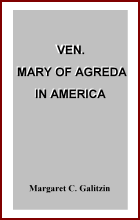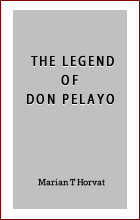American History
 |
 |
 |
 |
 |
 |
 |
Revolutionary Myths against Columbus - II
Why Columbus’ Honor Was Maligned
In May of 1506 there lay dying a man who had expanded the horizons of recorded knowledge beyond anyone’s wildest imaginings. Over the course of his life he had undergone horrific hardships: starvation, disease, war, famine, mutiny and imprisonment. His enemies accused him of avarice, treason, mismanagement and inhuman cruelty. At times even his friends wavered in their good-faith.
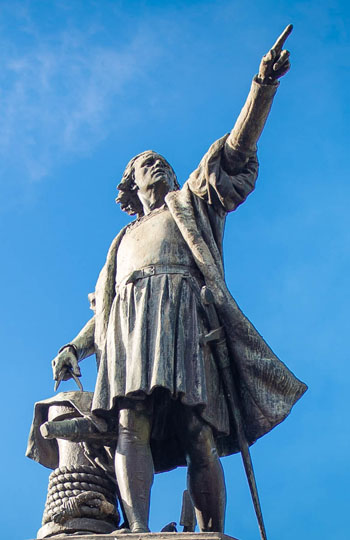 Yet, despite these obstacles, he had seen wonders the likes of which no European had dreamed, expanding the dominion of his royal patrons to shape their kingdom into a world superpower for centuries. His title was “the Admiral of the Ocean Sea.” His name was Christopher Columbus.
Yet, despite these obstacles, he had seen wonders the likes of which no European had dreamed, expanding the dominion of his royal patrons to shape their kingdom into a world superpower for centuries. His title was “the Admiral of the Ocean Sea.” His name was Christopher Columbus.
Myths
Much of the contemporary history passed down to Americans about Columbus is based on fiction more than fact. Allegations made by detractors clash with fables perpetuated by those who seek to honor his memory beyond reason. Some such myths are so easily dismissed they do not bear reciting. Others carry such a semblance of credibility that they are perpetuated today as if they were the actual truth.
Tribalist and biased pro-Indian movements of our own 21st century have selected and spread many of the myths about this phenomenal navigator. Armed with slanders, they attack his memory and attribute to him a whole host of colonial evils in their attempt to vindicate the nativist position against the real or invented crimes of the white man.
Bobadilla
Many of the accusations against Columbus find their source in the accounts of the Spaniards under his own command. Here are some of the factors that can explain how unfavorable and non-objective reports about Columbus surfaced while he was still alive: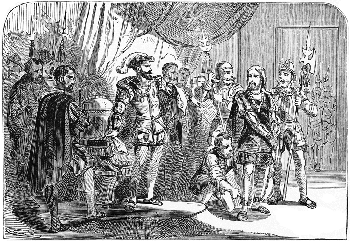 In response to the lies spread by Columbus’s enemies at the Spanish Court, a knight named Francisco de Bobadilla was dispatched to investigate the situation in Hispaniola. That Bobadilla’s bias against Columbus was firmly established is evident from his actions: He arrested Columbus without even corresponding with him to allow him to respond to the accusations.
In response to the lies spread by Columbus’s enemies at the Spanish Court, a knight named Francisco de Bobadilla was dispatched to investigate the situation in Hispaniola. That Bobadilla’s bias against Columbus was firmly established is evident from his actions: He arrested Columbus without even corresponding with him to allow him to respond to the accusations.
Upon arrival, Bobadilla forced his way into the fortress, freed the prisoners Columbus had arrested for armed rebellion against the Crown, and professed to believe the outlandish and conflicting testimonies of colonist and criminal alike. He then pardoned the rebels who were tired of the discipline of their Italian taskmaster. These and other farces were recounted with glee by his political opponents in Spain. The Admiral himself was summarily chained and sent back to Castile.
In Spain it immediately became obvious that Bobadilla had grossly abused his authority. Columbus was released and a royal order was issued for his property to be restored. Bobadilla was recalled and died en route home in a massive hurricane. Whether by coincidence or Providence we will never know, but it remains fact that one of the only vessels to survive the hurricane was the smallest and least seaworthy: the ship carrying Columbus’s own effects.
Despite his obvious prejudice and the immediate recall of Bobadilla, the accusations reported by him are being touted today as secure proof that Columbus was more a monster than man. To this day these false allegations fuel the fire of numerous anti-Columbus critics.
'Columbus, the slave master’
In their eagerness to condemn the Admiral, many of his modern detractors resort to emphasizing a practice odious to the 21st century mind: slavery. In the 15th century slavery was a well nigh universal practice. Every nation enslaved their conquered foes. Moors captured Africans to sell or to buy back their brethren captured by Catholics.
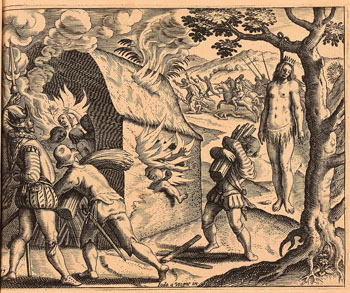 Catholic religious orders were founded to ransom their members in exchange for captive co-religionists or countrymen. In India class slavery in effect formed the foundation of society; in America native tribesmen regularly enslaved their Indian neighbors. The Spaniards in America were no strangers to that ancient practice; they enslaved Indians.
Catholic religious orders were founded to ransom their members in exchange for captive co-religionists or countrymen. In India class slavery in effect formed the foundation of society; in America native tribesmen regularly enslaved their Indian neighbors. The Spaniards in America were no strangers to that ancient practice; they enslaved Indians.
The fact that Columbus sometimes enslaved natives is uncontested. It is a historical fact, but to cite this as sure evidence of his wickedness ignores the universal nature of slavery in the 15th century. Columbus did what everyone else at his time did.
To condemn him for the Indians he did enslave is to arrogantly assert that the standards of our own society (in many ways highly-peculiar) ought to be comprehensively applied to all centuries past. One might as well condemn Columbus and the early American colonists for not giving the Indians the State-funded education, health care and other benefits that we provide today. This retroactive judgment without considering what was normal for that epoch is nonsensical. We must also remember that slavery persists in different forms even to this very day.
The calumny against Columbus breaks down further when considering his own policies: In fact he forbade the enslavement of natives under most circumstances. Only for criminals or cannibals did he permit such a practice.
Further, in several cases he forced his men to free Indians they had captured for slaves. When a local chief was suspected of the massacre of Spaniards at La Navidad, Columbus refused to take him prisoner in order not to anger relatives of the chief and thus raise an obstacle to the conversion of the natives to the Catholic Faith.
On his voyages Columbus did keep a few Indians onboard as translators, but it was his express desire that they be released after learning the Spanish language and customs in Spain. In the case of cannibals his reasoning was even comparatively legitimate: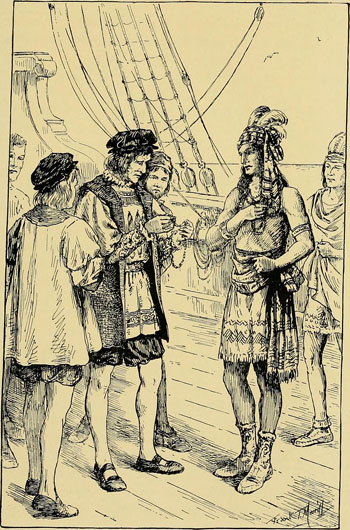 The largest batch of slaves Columbus authorized were captured warriors and allies from the tribe that had massacred the first Spanish outpost of La Navidad and was now trying to exterminate the second colony. The vastly outnumbered Spanish won.
The largest batch of slaves Columbus authorized were captured warriors and allies from the tribe that had massacred the first Spanish outpost of La Navidad and was now trying to exterminate the second colony. The vastly outnumbered Spanish won.
The fact that the prisoners were sold into slavery was simply application of the common practice for any victors of the 15th century. Had Columbus and his men lost they could have expected the same treatment. Indeed, much worse could have happened as some such native tribes kept slaves to be eaten.
Finally, we see that Columbus is being set up as the scapegoat for the cruel forms of slavery that developed in the Spanish colonies. Whereas many natives did die in those abuse-riddled systems, such as the Encomienda, it was Columbus’ replacement, not Columbus himself, who set up these structures.
The Admiral himself governed as a mitigating agent to try and prevent excesses, demonstrating in his letters and journals a genuine concern for the well-being of the natives. The fact that slavery was abused in the Spanish Empire took place despite the efforts of Columbus, rather than because of them. (1)
It is ironic and unjust that today Columbus is being blamed for crimes that in fact he condemned, committed by men who disobeyed his commands.
Continued
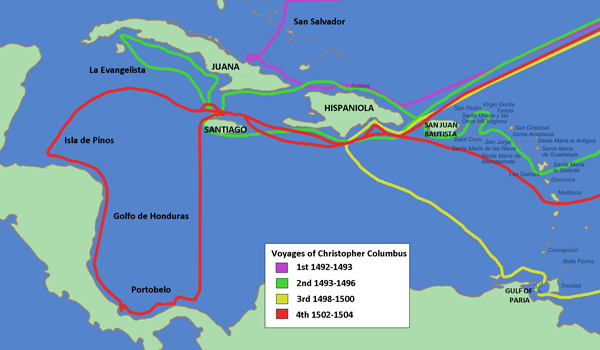


A visionary pointing the way to a New World, a portrayal insistently maligned today
Myths
Much of the contemporary history passed down to Americans about Columbus is based on fiction more than fact. Allegations made by detractors clash with fables perpetuated by those who seek to honor his memory beyond reason. Some such myths are so easily dismissed they do not bear reciting. Others carry such a semblance of credibility that they are perpetuated today as if they were the actual truth.
Tribalist and biased pro-Indian movements of our own 21st century have selected and spread many of the myths about this phenomenal navigator. Armed with slanders, they attack his memory and attribute to him a whole host of colonial evils in their attempt to vindicate the nativist position against the real or invented crimes of the white man.
Bobadilla
Many of the accusations against Columbus find their source in the accounts of the Spaniards under his own command. Here are some of the factors that can explain how unfavorable and non-objective reports about Columbus surfaced while he was still alive:
- In Hispaniola the hidalgos chaffed under Columbus’s emergency order that all colonists work regardless of social class.
- Setting up a civilization where only tribes existed was a monumental task; work was hard, tropical diseases were rife, starvation ensued and the hoped-for wealth of the “tropical paradise” was not immediately forthcoming. Many Spaniards felt they had been lied to about a New World with easy gold and wealth.
- Many colonists were convicts sent to Hispaniola as laborers as Columbus did not wish to enslave natives. These men were quick to rebel against Columbus at the first opportunity.
- Columbus and his brothers hailed from Genoa in Italy, and the proud Spaniards did not take well toward being under their command.
- The strict military discipline crucial for their initial survival was necessary, but sat poorly with the sick and weary colonists.
- Columbus was often absent on explorations, leaving his less competent brother to govern the colony. The colonists quickly grew to dislike the ineffectual brother and rebelled against the Administration, pillaging the countryside and setting themselves up as lords over Indian villages. Columbus was forced to bring these obviously disaffected men to justice.

Columbus returned to Spain in chains
because of the lies of Bobadilla
Upon arrival, Bobadilla forced his way into the fortress, freed the prisoners Columbus had arrested for armed rebellion against the Crown, and professed to believe the outlandish and conflicting testimonies of colonist and criminal alike. He then pardoned the rebels who were tired of the discipline of their Italian taskmaster. These and other farces were recounted with glee by his political opponents in Spain. The Admiral himself was summarily chained and sent back to Castile.
In Spain it immediately became obvious that Bobadilla had grossly abused his authority. Columbus was released and a royal order was issued for his property to be restored. Bobadilla was recalled and died en route home in a massive hurricane. Whether by coincidence or Providence we will never know, but it remains fact that one of the only vessels to survive the hurricane was the smallest and least seaworthy: the ship carrying Columbus’s own effects.
Despite his obvious prejudice and the immediate recall of Bobadilla, the accusations reported by him are being touted today as secure proof that Columbus was more a monster than man. To this day these false allegations fuel the fire of numerous anti-Columbus critics.
'Columbus, the slave master’
In their eagerness to condemn the Admiral, many of his modern detractors resort to emphasizing a practice odious to the 21st century mind: slavery. In the 15th century slavery was a well nigh universal practice. Every nation enslaved their conquered foes. Moors captured Africans to sell or to buy back their brethren captured by Catholics.

Massacres & abuses took place during Columbus' trial in Spain, showing those actions were not his
The fact that Columbus sometimes enslaved natives is uncontested. It is a historical fact, but to cite this as sure evidence of his wickedness ignores the universal nature of slavery in the 15th century. Columbus did what everyone else at his time did.
To condemn him for the Indians he did enslave is to arrogantly assert that the standards of our own society (in many ways highly-peculiar) ought to be comprehensively applied to all centuries past. One might as well condemn Columbus and the early American colonists for not giving the Indians the State-funded education, health care and other benefits that we provide today. This retroactive judgment without considering what was normal for that epoch is nonsensical. We must also remember that slavery persists in different forms even to this very day.
The calumny against Columbus breaks down further when considering his own policies: In fact he forbade the enslavement of natives under most circumstances. Only for criminals or cannibals did he permit such a practice.
Further, in several cases he forced his men to free Indians they had captured for slaves. When a local chief was suspected of the massacre of Spaniards at La Navidad, Columbus refused to take him prisoner in order not to anger relatives of the chief and thus raise an obstacle to the conversion of the natives to the Catholic Faith.
On his voyages Columbus did keep a few Indians onboard as translators, but it was his express desire that they be released after learning the Spanish language and customs in Spain. In the case of cannibals his reasoning was even comparatively legitimate:
- Cannibals should be enslaved to stop them from eating people;
- Their exposure to Spanish culture should lead to their conversion and the eternal salvation of their immortal souls;
- Their enslavement would ensure the respect of other tribes that feared the cannibals.

Columbus trading with Indians; he was known for his mildness in dealing with natives
The fact that the prisoners were sold into slavery was simply application of the common practice for any victors of the 15th century. Had Columbus and his men lost they could have expected the same treatment. Indeed, much worse could have happened as some such native tribes kept slaves to be eaten.
Finally, we see that Columbus is being set up as the scapegoat for the cruel forms of slavery that developed in the Spanish colonies. Whereas many natives did die in those abuse-riddled systems, such as the Encomienda, it was Columbus’ replacement, not Columbus himself, who set up these structures.
The Admiral himself governed as a mitigating agent to try and prevent excesses, demonstrating in his letters and journals a genuine concern for the well-being of the natives. The fact that slavery was abused in the Spanish Empire took place despite the efforts of Columbus, rather than because of them. (1)
It is ironic and unjust that today Columbus is being blamed for crimes that in fact he condemned, committed by men who disobeyed his commands.
Continued

The voyages of Christopher Columbus
- For more on Columbus and late 15th century slavery see Thacher, John Boyd, Christopher Columbus: his life, his work, his remains as revealed by original printed and manuscript records, together with an essay on Peter Martyr of Anghera and Bartolomé de las Casas, the first historians of America. Vol. II, The Knickerbocker Press, 1903, Ch. LXXIX,
see here.

Posted January 17, 2018
______________________
______________________






